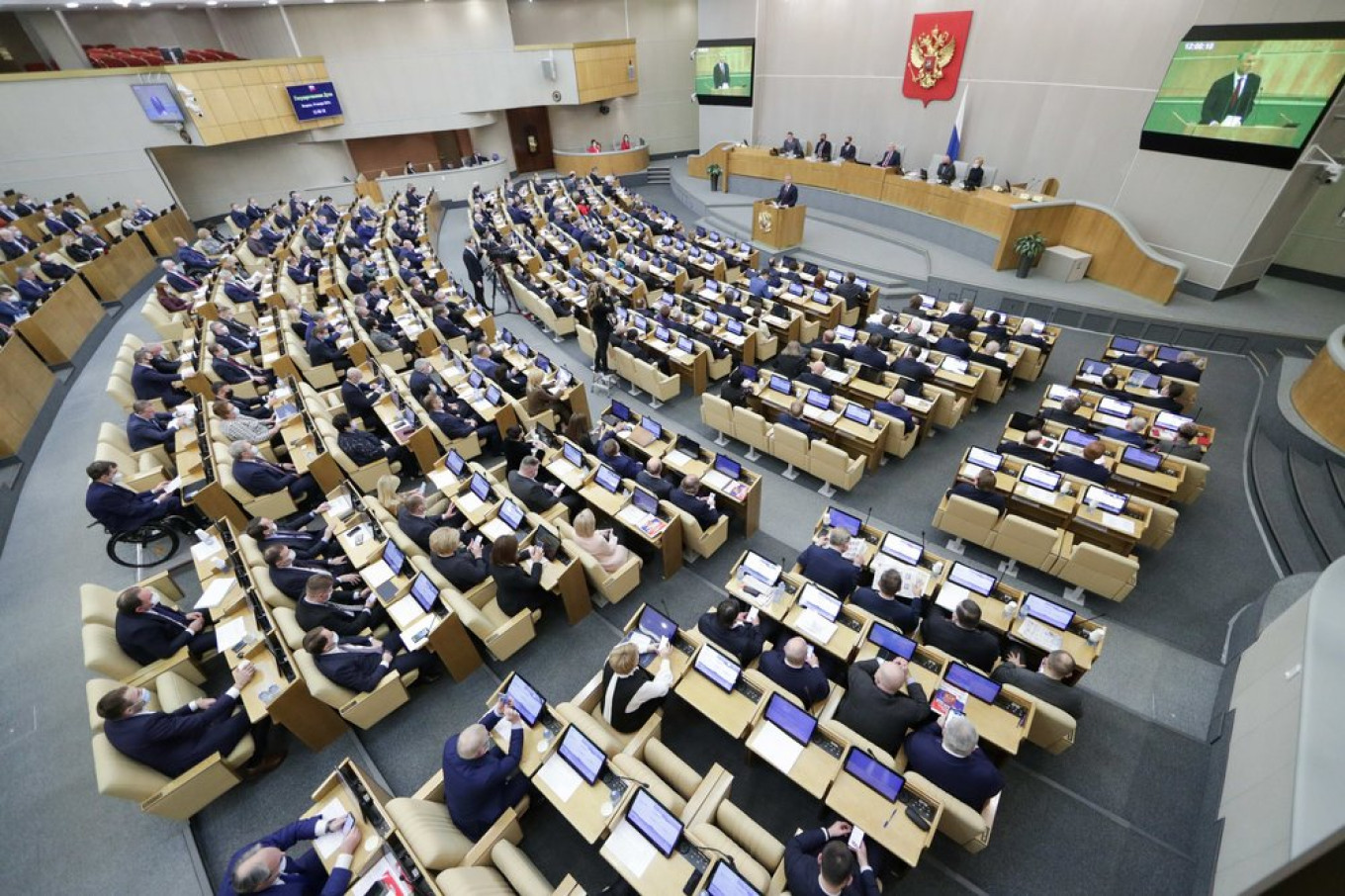
Russia’s ruling party is looking to ban the propaganda of polyamory and bisexuality as it weighs options to reverse its population decline and defend what it calls traditional values, the Kommersant business daily reported Friday.
The ban was among a number of proposals floated at Thursday’s United Russia party conference on supporting families. The conference comes ahead of this fall’s key parliamentary elections where the party, which backs President Vladimir Putin, seeks to maintain its majority in the State Duma.
According to Kommersant, lawmakers and religious figures debated measures including expanding support for large families in addition to deriding atheism, feminism and in vitro fertilization.
United Russia member Vladimir Krupennikov, in addition to banning the propaganda of bisexuality and polyamory that “corrupt our youth,” offered a ban on the propaganda of abortion, according to Kommersant. Russia, with one of the world’s highest abortion rates, has one of the world’s most liberal abortion laws despite campaigns by conservative lawmakers and the Russian Orthodox Church to end state-funded procedures.
The state-run RIA Novosti news agency reported that the proposal also included banning propaganda of sex changes and transgenderism.
It was not immediately clear whether Krupennikov’s proposal to ban the propaganda of bisexuality and polyamory had legislative prospects, but it reflected an increasingly conservative turn within Russia’s parliament.
The proposal comes nearly a decade after Russia banned “gay propaganda,” a controversial law that critics say has been used to silence activists and shut down gay pride events.
A majority of Russians voted last summer in favor of constitutional changes which, in addition to allowing Putin to extend his rule, added language defining marriage as a union between a man and a woman to the Constitution.
Pyotr Tolstoy, the deputy speaker of Russia’s lower-house State Duma, said at the United Russia conference that without state measures Russia’s population is expected to decline by 30 million over the next decade.
“Everyone in Russia more or less supports the moral values that our armchair liberals like to scoff at. These are families, but today’s large family in Russia is still a poor family,” Tolstoy said.